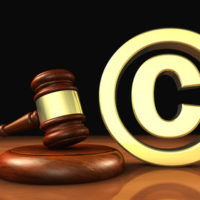Copyright Law: What Are Derivative Works?

A derivative work is one that is based largely off of a pre-existing work. Under the Copyright Act of 1976, copyright holders are entitled to some important legal protection against anyone using their original work for derivative purposes, without their express consent.
However, this does not mean that you cannot be inspired to create a ‘new’ work based off of a prior work. Indeed, that is very much allowed. The ‘line’ regarding what actually constitutes derivative copyright infringement can be very difficult to see. Here, our experienced West Palm Beach litigation attorneys discuss some of the key points that you should know about copyright law and derivative works.
Copyright Holders Have Exclusive Rights
Under U.S. law, all copyright holders have exclusive rights to use their original work. This means that they have the right to create and control any derivative works that are based on their original content. If another party creates a derivative work that is ‘substantially similar’ to the protected aspects of the original, then they are guilty of copyright infringement. For example, if a major company like Disney creates a new character, you do not have an unabridged right to use that identical character in your own work, without their express permission.
Getting Beyond the Derivative: Transformative Works
While content creators can not simply ‘derive’ their work from an earlier protected work, they do have the legal right to create a ‘transformative’ work. This is a very important distinction. If a work is sufficiently transformative, even if it was inspired by, or used some elements of a copyright-protected work, it will not be considered copyright infringement. Indeed, not only will sufficient transformativeness allow a work to be excused from potential liability for infringement, but it will allow the new work to qualify for its own copyright protection.
Understanding Transformative Works Through Case Law
The 1994 Supreme Court case of Campbell v. Acuff-Rose Music, Inc. provides the legal basis for how transformative works are viewed under the fair use doctrine. In this case, the Supreme Court made it extremely clear that transformativeness was a key principle of fair use.
In Campbell, a musical artist was sued for copyright infringement following the production of a parody of the song ‘Oh, Pretty Woman’. The court noted that the parody, while clearly (and derisively) taking elements from the original, still brought considerable new insight to consumers and the public. As such, it was sufficiently transformative on those grounds.
Certainly, the line between what is derivative (copyright infringement) and what is transformative (acceptable) is somewhat vague and is hard to apply. Ultimately, it requires a fact specific review of the individual circumstances of the case in question. The bottom line: If you need legal assistance in this area, it is imperative that you get an experienced copyright attorney by your side as soon as possible.
Contact Our Office Today
At Pike & Lustig, LLP, our South Florida copyright law attorneys have considerable experience handling claims involving derivative and transformative works. To learn more about how we can help you, please do not hesitate to contact us today to set up your free initial legal consultation. From our offices in West Palm Beach, Wellington and Miami, we represent individuals and business throughout the region.
Resource:
law.cornell.edu/supct/html/92-1292.ZS.html
